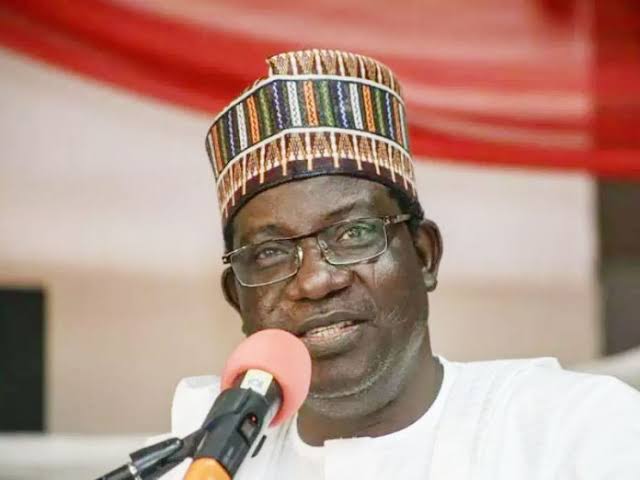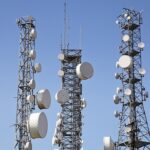Banditry, kidnapping, drug abuse, almajirai, excruciating poverty, terrorism and insurgency, sectarian violence, ethnic and religious bigotry, these are the defining features of northern Nigeria today.
If you want to know how the North is collectively addressing these existential issues you may hasten to attend some of the numerous conferences that are routinely convened for this purpose. You are likely to see convoys of limousines, cars and four-wheelers of every description, conveying dignitaries clad in offensively expensive attires to the venue. There will be speeches after speeches lamenting the state of things in the North and how things have deteriorated so badly from what used to be. There will be the inevitable reference to the days of yore complete with anecdotes of when the North was such a beautiful place to be.
Meanwhile outside the venue of the event kept well away from the access to the inner recess by a compliment of well-armed security personnel are hordes of the tattered, hungry, destitute and deprived on whose behalf the event is purportedly taking place shouting a chorus of want much to the disinterest of those assembled at the inner chambers of the venue. The event will end with a well-crafted and articulated communique mainly for the benefit of the media and the dignitaries will depart in their rolled up, smoked glass limousines in a cloud of dust that will descend on the hapless masses quarantined at the perimeter of the venue.
It is truly one of the great paradoxes of Nigeria that the area covering two-thirds of its landmass and more than half of its population is this time warp of development. To carry the irony further, it is incredulous that northern Nigeria which has been dominating the power stakes in Nigerian political history remains collectively more underdeveloped relative to the southern part of Nigeria. This is borne out by every measure or statistic of human development.
Why has the North not made good its dominance of political power in Nigeria to transform the area?
The answer if we must be honest to ourselves is that the elites of the North who are expected to drive this imperative of northern development has somehow found morbid comfort in the situation. “It is our culture and religion they say’’ with a straight face when confronted on this. It serves the northern elite very well to promote the notion of northern cultural superiority such that even the masses of northern poor in their abject condition still feel not only contented with their lot, but also believe that it is their spiritual and moral duty to resist any moves to change their lot no matter the benign intentions and benefits.
Northern elites’ resistance to transformation of the north takes two main trajectories; keep the Northern masses in a state of underdevelopment to make them malleable and secondly to use it as a political tool for power negotiation in the political stakes in Nigeria. This was the main reason behind the bridling of westernizing forces and influences in the North during colonial rule. It was also the reason why the North felt able to delay the independence of Nigeria.
Northern dominance of political power in this regard has not been of such significance as to change the fortunes of the North fundamentally. The North has never really initiated and followed through any development initiative either for itself or for the nation. The push for that always comes from the South. The first University in the North was established not because the North wanted to on its own, but because it needed to respond to a similar initiative from the South-West and South-East. Same for the polytechnic, the stadium, the newspaper and several other policies. Power, as exercised by the northern elite in the political stakes in Nigeria, has been more to entrench their social class in the North and in dominating politically the southern political elites through a delicate political game of divide and rule.
If the North elite are content to promote northern backwardness in order to continue to entrench their agenda for regional and national political dominance, the rest of the country is not. Indeed the blowback to that retrograde politics is what we are seeing all over the North today. In the past, Aminu Kano was able to step into the void and mobilize the northern masses to press for their political and social rights in which he succeeded to a large extent. The void created by Aminu Kano’s passing away and the yearning for that is what accounts to a large extent for the rise of Muhammadu Buhari whom the northern masses saw as an incarnate of the late great political leader. But your guess is as good as mine whether that yearning in the North has been fulfilled thus far.
Also within the North, the passage of time and the perceived political exclusion of certain areas of the north have widened the ethnic and religious fissures which hitherto were of a tolerant and manageable level. Now, of course, such fissures have morphed into such frightening levels as to threaten the once taken-for-granted northern unity and cohesion across the ethnic and religious divides.
At the national level, the southern political blocs seeing that the abiding political agenda of the northern political elite is to continue to entrench itself through the deliberate promotion of backwardness among the northern masses, are having to ask themselves justifiably why they have to continue to stay in a union with such retrograde arrangement by people who for one reason or the other have found themselves dominating the political power stakes in Nigeria. This I believe is the reason behind calls variously for political restructuring or secession in the country by southern political groups.
The northern elite will have to consider these developments seriously because of objective factors on ground.

 Join Daily Trust WhatsApp Community For Quick Access To News and Happenings Around You.
Join Daily Trust WhatsApp Community For Quick Access To News and Happenings Around You.


